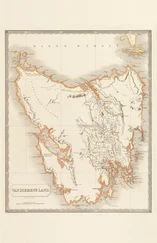Joshua Giddings - The Exiles of Florida
Здесь есть возможность читать онлайн «Joshua Giddings - The Exiles of Florida» — ознакомительный отрывок электронной книги совершенно бесплатно, а после прочтения отрывка купить полную версию. В некоторых случаях можно слушать аудио, скачать через торрент в формате fb2 и присутствует краткое содержание. Жанр: foreign_antique, foreign_prose, на английском языке. Описание произведения, (предисловие) а так же отзывы посетителей доступны на портале библиотеки ЛибКат.
- Название:The Exiles of Florida
- Автор:
- Жанр:
- Год:неизвестен
- ISBN:нет данных
- Рейтинг книги:5 / 5. Голосов: 1
-
Избранное:Добавить в избранное
- Отзывы:
-
Ваша оценка:
- 100
- 1
- 2
- 3
- 4
- 5
The Exiles of Florida: краткое содержание, описание и аннотация
Предлагаем к чтению аннотацию, описание, краткое содержание или предисловие (зависит от того, что написал сам автор книги «The Exiles of Florida»). Если вы не нашли необходимую информацию о книге — напишите в комментариях, мы постараемся отыскать её.
The Exiles of Florida — читать онлайн ознакомительный отрывок
Ниже представлен текст книги, разбитый по страницам. Система сохранения места последней прочитанной страницы, позволяет с удобством читать онлайн бесплатно книгу «The Exiles of Florida», без необходимости каждый раз заново искать на чём Вы остановились. Поставьте закладку, и сможете в любой момент перейти на страницу, на которой закончили чтение.
Интервал:
Закладка:
The first article merely makes an exchange, by the Seminoles, of lands in Florida for an equal extent of territory, west of the Mississippi, adjoining the Creek Nation.
The second article provides compensation for the improvements, and specifically stipulates, that Abraham and Cudjoe (two Exiles who acted as interpreters) should receive, each, two hundred dollars.
The third provides for the distribution of blankets and frocks among them.
The fourth article provides for certain annuities, etc.
The fifth merely stipulates the manner in which the personal property of the Seminoles shall be disposed of in Florida, and the same articles supplied them in their new homes at the West.
The sixth is in the following language: “The Seminoles, being anxious to be relieved from the repeated vexatious demands for slaves and other property, alleged to have been stolen and destroyed by them, so that they may remove to their new homes unembarrassed, the United States stipulate to have the same properly investigated, and to liquidate such as may be satisfactorily established, provided the amount does not exceed fourteen thousand dollars.”
The seventh article stipulates that a portion of the Indians should remove in 1833, and the remainder in 1834.
Two leading features of this treaty attract the attention of the reader. The first is the removal of the Seminoles; second, their reunion with the Creeks . The Creeks, having paid the slaveholders of Georgia for their loss of Exiles, had permitted the subject to rest in silence, and, so far as we are informed, no formal claim had yet been asserted by the Creeks to seize and hold the Exiles as slaves; but it is evident that the negotiators of this treaty intended to place the Seminoles, when settled in their western homes, within the power, and under the jurisdiction, of the Creeks. Yet it was well known that, from the time of their separation, in 1750, up to the signing of this treaty, they had disagreed and, at times, had been in open war with each other. General Cass, the Secretary of War, as well as the President, must have known that McIntosh, the principal chief of the Creeks, had accompanied Colonel Clinch, with five hundred warriors, when he invaded Florida for the purpose of massacreing the Exiles at “Blount’s Fort,” in 1816; that the Creeks shared in that massacre, and had publicly tortured and murdered one Indian and one negro, whom they styled chiefs. It is difficult to believe that any man could expect them to live together in peace, with the recollection of those scenes resting on the mind; nor has any explanation yet been given, nor reason assigned, for the anxiety of our officers to place the Seminoles within the power of the Creeks, except a desire to enslave the Exiles.
Abraham, who acted as interpreter, had been born among the Seminoles. His parents had fled from Georgia, and died in their forest-home. He appears to have been a man of unusual influence with his more savage friends; and although he insisted on emigrating to the West, in opposition to many of his brethren, yet he has to this day maintained a high reputation among his people. Cudjoe was less known, and, subsequently, was less conspicuous than Abraham; indeed, we know but little of him. But the experience of Abraham, nor the learning of Cudjoe, could detect that vague use of language which was subsequently seized upon for justifying the fraud perpetrated under this treaty.
In the preamble, it was stipulated that the Seminoles were to send six of their confidential chiefs to view the western country; and if they were satisfied with the country, etc. The Seminoles supposed the pronoun they had relation to the Tribe; while General Jackson construed it to refer to the chiefs sent West. If they were satisfied, he held the Tribe bound to emigrate at all events; and his efforts were, therefore, directed to satisfying the chiefs who went to view the country.
But the leading men of the Seminoles became suspicious of the design of the Creeks to enslave the Exiles, before their delegation left Florida, and publicly expressed their suspicion. 67 67 Vide Sprague’s History of the Florida War.
The President appears to have determined on securing the emigration of the Indians at all hazards and at any sacrifice. For that purpose he appointed commissioners to go west and obtain from the Seminole delegation, while yet in the western country, and absent from the tribe, an acknowledgment that the country was suitable for a residence, and that the Creeks were anxious to unite with them as one people. This was to be obtained before the Seminole delegation should return to Florida, or make report to their nation, or give the Tribe an opportunity to judge or act upon the subject.
His object was accomplished (March 28). The commissioners obtained an “ additional treaty ,” signed by the Seminole delegation sent West, without any authority from their Nation to enter into any stipulation; nor had the commissioners, on the part of the United States, authority to form any treaty whatever: yet this additional treaty, as it was called, after reciting some of the stipulations contained in that of Payne’s Landing, declares “that the chiefs sent to examine the country are well satisfied with it;” and then stipulates, “that the Seminole Indians shall emigrate to it so soon as the United States shall make the necessary preparations.” There was also another provision in this additional treaty of vast importance to the Exiles; it designated and assigned to the Seminoles a certain tract of country, giving its metes and bounds, to the “ separate use of the Seminoles forever.”
Their agent, Major Phagan, appears to have been willing and capable of performing his part in this diplomatic intrigue. We have no knowledge of the means used to obtain this additional treaty, nor the bribery by which it was secured; but it is known that the chiefs, before they went West, expressed their dislike of reuniting with the Creeks; that when they returned, they denied having agreed to settle under Creek jurisdiction; it is also certain that the additional treaty stipulates that the Seminoles shall have their lands separate from the Creeks.
When they returned, their agent, Major Phagan, represented them as having stipulated for the positive removal of the Seminoles. The chiefs denied it, and insisted they had understood their authority as extending only to an examination of the country, and to report the result to the Nation. They requested that the chiefs, head-men and warriors be assembled to hear their report, and to express their own determination. But the agent refused to call such council, and assured them that their homes and heritage were already sold, and that nothing now remained for them to do but to prepare for removal.
The people of Alachua County, Florida, feeling indignant at the determination of the Seminoles to remain in that Territory, addressed a protest to the President of the United States, declaring that the Seminoles did not capture and return the fugitive slaves who fled to the Indian country, according to their stipulations in the treaty of Camp Moultrie, but rather afforded protection to them. They further stated that while the Seminoles remained in the country no slaveholder could enjoy his property in peace. This protest was signed by ninety of the principal citizens of said county, and forwarded to the President.
This statement aroused the ire of the President, who at once indorsed on the back of the petition an order to the Secretary of War to “inquire into the alleged facts, and if found to be true, to direct the Seminoles to prepare to remove West and join the Creeks .” The order was characteristic of the author. He waited not for the approval or ratification of any treaty; with him the whole depended upon the alleged fact of the Seminoles failing to bring in fugitive slaves – not upon treaty, nor upon the ratification of treaties. 68 68 Vide Documents relating to the Florida War, 1st Session, XXIVth Congress.
Интервал:
Закладка:
Похожие книги на «The Exiles of Florida»
Представляем Вашему вниманию похожие книги на «The Exiles of Florida» списком для выбора. Мы отобрали схожую по названию и смыслу литературу в надежде предоставить читателям больше вариантов отыскать новые, интересные, ещё непрочитанные произведения.
Обсуждение, отзывы о книге «The Exiles of Florida» и просто собственные мнения читателей. Оставьте ваши комментарии, напишите, что Вы думаете о произведении, его смысле или главных героях. Укажите что конкретно понравилось, а что нет, и почему Вы так считаете.












